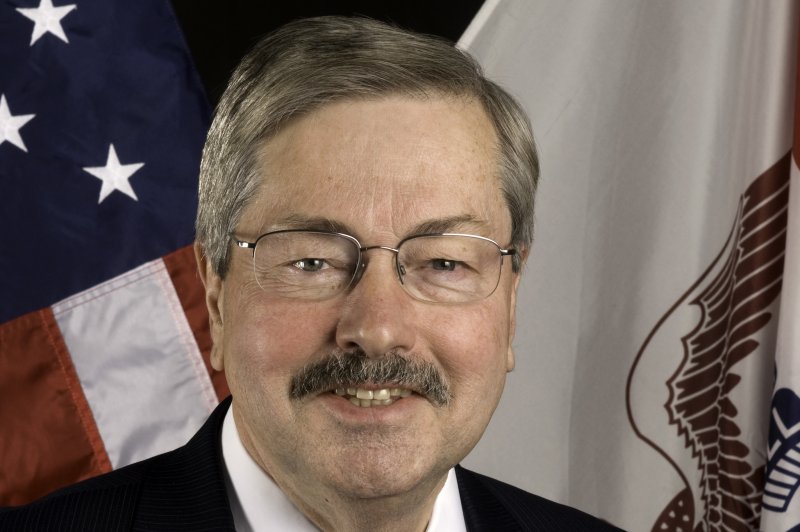The Iowa Supreme Court upheld a ban on felon voting put in place by Gov. Terry Branstad, a Republican. His predecessor, a Democrat, had issued an executive order restoring voting rights to some 115,000 Iowans who finished prison terms for felony convictions. Photo courtesy of the state of Iowa
DES MOINES, Iowa, June 30 (UPI) -- Iowa's top court ruled against a challenge to the state's restrictions on felon voting Thursday, keeping in place Gov. Terry Branstad's policy prohibiting most convicts from the polls.
In a 4-3 decision, the Iowa Supreme Court agreed the state constitution's language, which prohibits those who commit "infamous crimes" from voting, still applies to all felonies and some misdemeanors, though the court left open the possibility that definition could change.
"The term 'infamous crime' was generally recognized to include felony crimes at the time our constitution was adopted. This meaning has not sufficiently changed or evolved to give rise to a different meaning today. In addition, unlike some past cases when we have interpreted provisions of our constitution, the facts and evidence of this case are insufficient to justify judicial recognition of a different meaning," Chief Justice Martin Cady wrote. "This conclusion is not to say the infamous-crime provision of our constitution would not accommodate a different meaning in the future. A different meaning, however, is not for us to determine in this case. A new definition will be up to the future evolution of our understanding of voter disqualification as a society, revealed through the voices of our democracy."
The issue of felon voting has become a political football in Iowa. Former Gov. Tom Vilsack, a Democrat, issued an executive order restoring voting rights for some 115,000 convicted felons who had finished their prison sentences. When Branstad, a Republican, took over, one of his first acts was to rescind the order, again barring felons from voting.
The case was brought by the American Civil Liberties Union on behalf of Kelli Jo Griffin, 42, a mother of four who was convicted of felony cocaine delivery in 2008. Griffin completed her prison term and was under the impression she was again allowed to vote, unaware Branstad had revoked the privilege.
In 2013, Griffin brought her children with her to a polling place to watch her vote in a municipal election. Her vote was cast and counted, but she was subsequently charged with perjury following an investigation by then-Iowa Secretary of State Matt Schultz, whose office was aggressively investigating voter fraud cases in an effort to build support for a law that would require voters to show ID at the polls.
Griffin was subsequently acquitted of the perjury charge by a Lee County, Iowa, jury, but the case cost her $10,000 in legal fees, NBC News reported.
Iowa's total ban on felon voting makes it one of three states to do so, including Florida and Kentucky.















